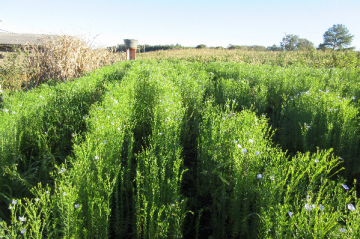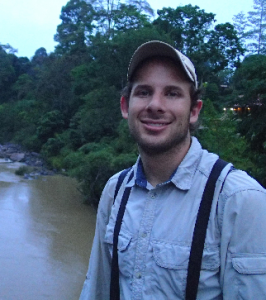IRES Seminar Series
Time: 12:30pm to 1:30pm (every Thursday)
Location: AERL Theatre (room 120), 2202 Main Mall
Harmonizing Conservation with Agricultural Production Across Working Landscapes
Abstract: A critical challenge for this century is transitioning towards sustainable food systems that are productive and secure for both nature and people. Yet conservation scientists and practitioners have traditionally fixated on protected areas and overlooked opportunities for pursuing conservation in working landscapes. In Costa Rica, I found that diversified agricultural systems— with multiple crops and patches of native vegetation— sustained remarkable concentrations of biodiversity. Conserving biodiversity also benefited farmers. Maintaining forests and their associated birds near farms halved infestations of coffee’s most damaging insect pest, preventing US$70-US$310/ha in damage. In California, however, wildlife is being systematically eradicated from farms, following a deadly 2006 E. coli outbreak in fresh spinach that was loosely linked to wild pigs. My work has documented how such food-safety scares can reverberate through socio-ecological systems, causing rapid changes in agricultural practices and ecosystem services. For example, I found that the now widespread practice of removing nearby non-crop vegetation (perceived as wildlife habitat) is not effective, and may even be increasing the prevalence of foodborne pathogens (e.g., enterohemorrhagic E. coli and Salmonella enterica) in leafy green vegetables. Moreover, I found that adjacent habitat was associated with high levels of arthropod biodiversity and better control of farmland pests. These results suggest that conserving non-crop vegetation in farmland, or diversifying farms more broadly, can often represent a promising win-win opportunity for biodiversity and farmers.

Photo credit: Jill Guerra
Bio: Daniel Karp is currently a Killam postdoctoral fellow at the University of British Columbia, and will be starting an assistant professor position at the University of California, Davis in January 2017. Daniel completed his Ph.D. in 2013 and undergraduate studies in 2009 at Stanford University’s Department of Biology. He has published >20 papers in high-impact journals such as Science, Nature, PNAS, and Ecology Letters. Broadly, Daniel’s interests center on developing innovative methods for harmonizing food production with the conservation of ecosystem services and biodiversity. His research thus focuses on developing innovative solutions for reconciling conservation activities with food production practices. His research program has four thrusts. First, he develops and applies ecological theory to understanding and managing biodiversity in human-dominated landscapes. Second, he quantifies the effects of alternative agricultural practices on biodiversity-mediated ecosystem services to people. Third, he investigates how identifying tradeoffs among biodiversity and ecosystem services can inform development of multifunctional landscapes. Finally, Daniel works extensively with interdisciplinary scientists and practitioners to synthesize science and guide policy.
